£11.99
The Roman Revolution: 1 (The Fall of the Roman Empire)
It was a time of revolution.
The Roman Revolution describes the little known “crisis of the third century”, and how it led to a revolutionary new Roman Empire. Long before the more famous collapse of the Western Roman Empire in the fifth century, in the years between AD 235-275, barbarian invasions, civil war and plague devastated ancient Rome. Out of this ordeal came new leaders, new government, new armies and a new vision of what it was to be Roman. Best remembered today is the rapid rise of Christianity in this period, as Rome’s pagan gods were rejected, and the emperor Constantine converted to this new religion. Less well remembered is the plethora of other changes that conspired to provide an environment well suited to a religious revolution. Drawing on the latest research, Nick Holmes looks for new answers to old questions. He charts the rise of the Roman Republic and the classical Roman Empire, examining the roles played by sheer good luck and the benign climate. For example, he emphasises the unexpected death of Alexander the Great and the subsequent weakness of the Greek successor states as the ideal political environment for Rome’s expansion. But Rome’s good fortune did not last. The rise of Sasanian Persia, the growing strength of the German barbarians, and the brutal effects of the Antonine plague caused the near collapse of the Roman Empire in the third century. Focusing on the reigns of the critically important but under-researched emperors in the third century, such as Aurelian, Diocletian and Constantine, he vividly brings to life how Rome just escaped catastrophe in the third century, and embarked on a journey that would take it into a brave new world – one which provided the foundations for modern Europe and America. This book is the first of a multi-volume series that will chart the full course of the Fall of the Roman Empire from the third century AD to the seventh. The second book, The Fall of Rome, continues the story of Rome’s decline up to the sack of Rome by Alaric the Goth in AD 410. The third book, Rome and Attila, covers the period from AD 410 to the western empire’s final demise in AD 476. Further books will look at the Roman reconquest of Italy and North Africa under the Emperor Justinian in the sixth century, followed by the rise of Islam and the demise of the Eastern Roman Empire in the seventh century.| Dimensions | 12.85 × 1.78 × 19.84 cm |
|---|---|
| Publisher | Puttenham Press Ltd (18 July 2022) |
| Language | English |
| Paperback | 308 pages |
| ISBN-10 | 1739786505 |
| ISBN-13 | 978-1739786502 |
| Dimensions | 12.85 x 1.78 x 19.84 cm |
10 reviews for The Roman Revolution: 1 (The Fall of the Roman Empire)
Related products
Assyria: The Rise and Fall of the World’s First Empire (Bloomsbury Publishing)
£12.55The first comprehensive account of the rise and fall of what historians consider to be the world’s very first empire: Assyria
‘A work of remarkable synthesis. The range of its sources is truly extraordinary . . . Frahm punctures a fair share of myths too’ Pratinav Anil, The Times
At its height in 660 BCE, the kingdom of Assyria stretched from the Mediterranean Sea to the Persian Gulf. It was the first empire the world had ever seen.
Here, historian Eckart Frahm tells the epic story of Assyria and its formative role in global history. Assyria’s wide-ranging conquests have long been known from the Hebrew Bible and later Greek accounts. But nearly two centuries of research now permit a rich picture of the Assyrians and their empire beyond the battlefield: their vast libraries and monumental sculptures, their elaborate trade and information networks, and the crucial role played by royal women.
Although Assyria was crushed by rising powers in the late seventh century BCE, its legacy endured from the Babylonian and Persian empires to Rome and beyond. Assyria is a stunning and authoritative account of a civilisation essential to understanding the ancient world and our own.
Justinian’s Empire: Triumph and Tragedy (The Fall of the Roman Empire)
£12.99IT WAS AN AGE OF GLORY…
…BUT ALL THAT GLITTERS IS NOT GOLD.
‘A riveting account of Justinian’s reign that challenges traditional consensus’ Kirkus Reviews
The sixth-century AD witnessed a remarkable turn-around in the Roman Empire’s fortunes. Justinian’s general, Belisarius, recovered North Africa and Italy from the barbarians. An impressive new law code was inaugurated that would endure to this day. Astonishing building projects, like the iconic Hagia Sophia, rivalled the great monuments of Old Rome.
But rather than restoring Rome’s greatness did Justinian in fact pave the way for its collapse less than a century after his death? Drawing on the contemporary sources, especially those of the chronicler Procopius, Nick Holmes reveals a darker side to Justinian – a ruthless opportunist, whose costly conquests and misguided priorities drained the empire’s wealth and critically weakened its army.
This is the fourth volume in Nick Holmes’ series on the Fall of the Roman Empire. The first three books trace the empire’s story from the ‘crisis of the third century’, through its reinvention by Constantine as a Christian state, and then onto the fall of its western half. A fifth volume will tell of its rapid demise in the seventh century AD, when the first Islamic Caliphate became the new superpower of western Eurasia.
Praise for Nick Holmes’ Books
‘A talent for storytelling’ Kirkus Reviews
‘Clear, succinct and compelling’ AudioFile Magazine
‘Perhaps the best historical story-teller alive’ Amazon Reviewer
Magic and Mysteries of Ancient Egypt
£18.40The History of the Peloponnesian War (Classics)
£12.49‘With icy remorselessness, it puts paid to any notion that the horrors of modern history might be an aberration – for it tells of universal war, of terrorism, revolution and genocide’ Tom Holland
The long life-and-death struggle between Athens and Sparta plunged the ancient Greek world into decades of war. Thucydides was an Athenian and achieved the rank of general in the earlier stages of the war, and in this detailed, first-hand contemporary account he writes as both a soldier and a historian. He applies a passion for accuracy and a contempt for myth and romance in compiling a factual record of a ruinous conflict that would eventually destroy the Athenian empire.
Translated by Rex Warner with an introduction and notes by M. I. Finley
The Ancient Mysteries: A Sourcebook of Sacred Texts
£19.34Zeus and the other gods of shining Olympus were in reality divine only by popular consent. Over the course of time Olympian luster diminished in favor of religious experiences more immediate to the concerns of people living in an increasingly cosmopolitan ancient world. These experiences were provided by the mysteries, religions that flourished particularly during the Hellenistic period and were secretly practiced by groups of adherents who decided, through personal choice, to be initiated into the profound realities of one deity or another. Unlike the official state religions, in which people were expected to make an outward show of allegiance to the local gods, the mysteries emphasized an inwardness and privacy of worship within a closed band of initiates.
In this book, Marvin W. Meyer explores the sacrifices and prayers, the public celebrations and secret ceremonies, the theatrical performances and literary works, the gods and goddesses that were a part of the mystery religions of Greece in the seventh century B.C. to the Judaism and Christianity of the Roman world of the seventh century A.D.

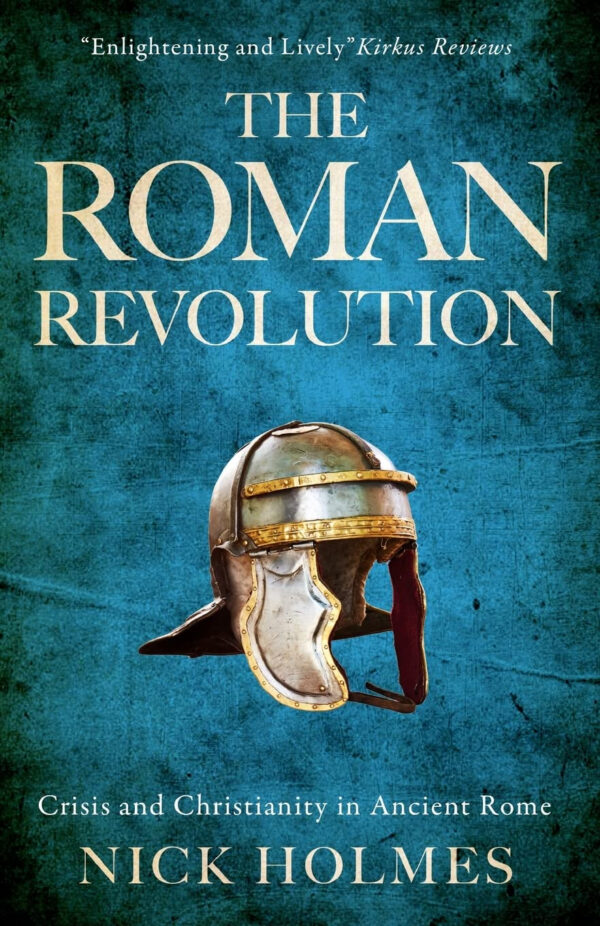


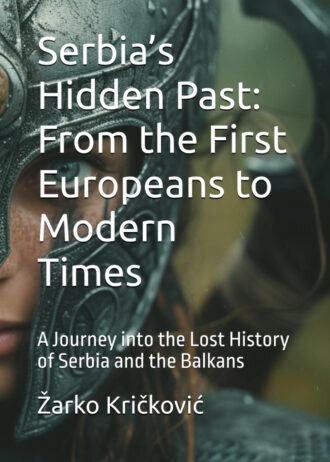
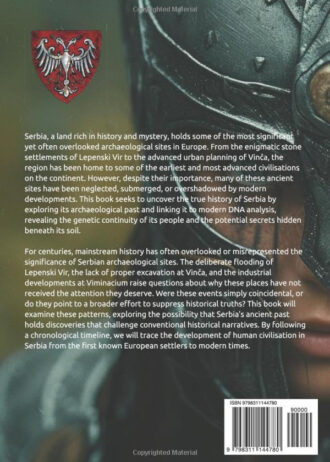
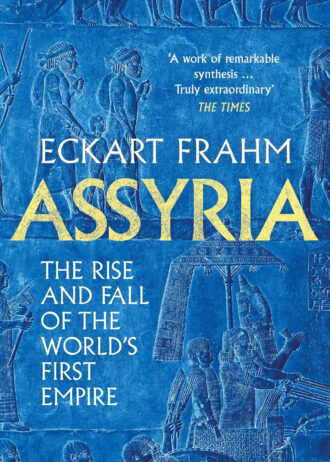
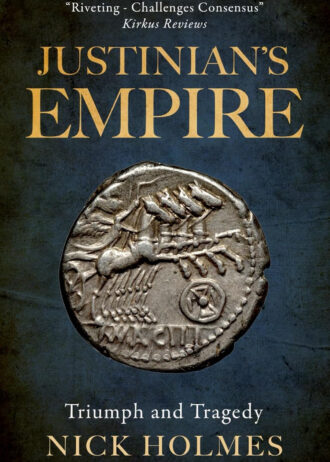
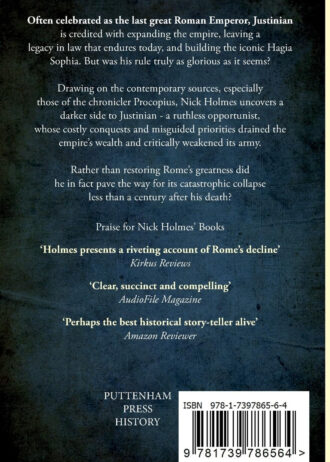
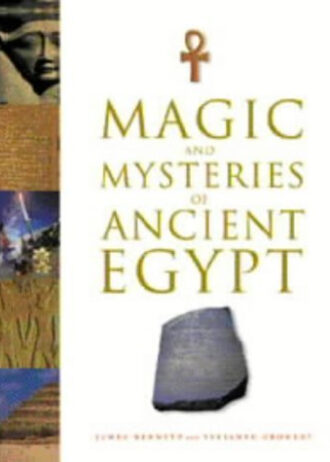
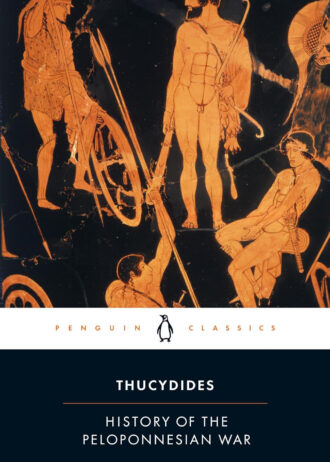
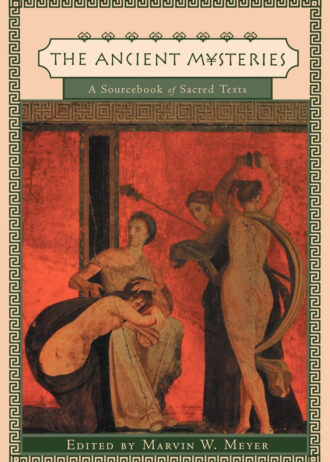
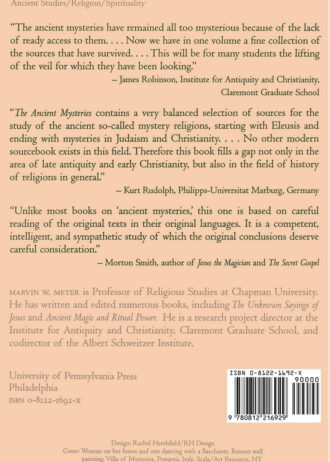
Kindle Customer –
This is a good informative read, learnt things about the Romans I wasn’t aware of. Nice short chapters makes it easier to follow
Mr. C. W. V. Mccleery –
A remarkable work, taking into account historical effects of climate change during this interglacial period, mostly ignored by other historians. It should be required reading for all believers that climate change is solely anthropogenic. The Dark Ages in Europe coincided with the end of the Roman warm period (repeated world-wide) and the start of the medieval warm period.
Gazza –
I’m currently enjoying The Roman Revolution and The Fall of Rome by Nick Holmes immensely, alongside podcast episodes that the author provides. Holmes tells the story of Rome for novices of history like myself, so that the reader is not bogged down with multiple names, events and overlong, drawn-out chapters that go on forever, as many histories of the Classical world seem to do.In Holmes’ retellings, the writing is succinct, engaging and to the point. With little excessive baggage, the reader can stay on board and not lose interest in the story being told, as so often is the case with longer texts.These two books I feel will act as a precursor to further, more detailed readings of Roman history that, to date, have been barriers to learning and enjoying the subject, unless, that is, one has background knowledge in the subject to begin with. Highly recommended.I hope you find my review helpful.
Ian Witham –
When I was at school, we studied history three times. First we galloped from the Old Stone Age to the Second Elizabethan Age in two years at primary school. At senior school, we went back to the Old Stone Age and did it all again in three years in more detail. That time, I was at a boys’ school and had a male teacher so we had more executions and pirates. That was more fun. The third time, we did one period and one topic. At my school we studied Roman Britain and the history of building.I have been told that modern teachers do not provide the sign posts that our teachers erected. Their students do not know if Augustus was the first emperor or the fifth. Why was Varus famous?There is very little about the Republic and less about the kings. It is mostly about the Empire and even then it leaves out so much of the fun facts that made my history lessons so jaw-droppingly amazing. Buy it if you need a brief chronology of the Empire but there are better books about the period out there.
Philmarie –
This book is so easy to read, it leads you through history as if it were yesterday. I learned and understood so much while reading the short straightforward chapters. Not an academic tome, but not lightweight either. The author tells you what you need to know, what is interesting, essential to know as well as contemporary comparisons. A fascinating backdrop to the historical Jesus, the life and times of early Christianity.
John Houghton –
As someone who has read more than his fair share of Roman History this first book in the series is concise and well written and I am looking forward to the next 3 episodes
F. J. FURSTENBERG –
Great history told easily and not boringGreat pity they lost their way and by now we are on the same track
Tom Verdin –
This is a fast paced introduction to Roman history from beginning of the foundation myth to Constantine’s move to the east. If it’s an introduction to the History of Rome your after this book fits the bill Those who are a little more familiar with Roman history won’t find anything new here. Nevertheless I would still recommend this book.
John E. Dunlap –
A New View of the Third Century Crisis of Rome
The Roman Empire, along with the Byzantine Empire, is unique in that it went through a period of decline but recovered to become a new and strong empire. Nick Holmes’ book focuses on the Empire’s crisis of the Third century. The author describes numerous causes of the decline, many not discussed by other historians. For example, Italy and North Africa experienced a drastic climate change in the Third Century which decreased grain production. Holmes concludes by discussing the Emperors who rescued Rome from decline and enabled it to emerge as a viable, if different, empire. Holmes tells his story in a readable and relatively short book. Many books discussing Rome exceed one thousand pages. This book is less than three hundred pages.
Dr. DNA –
great writing, perceptive analyses
A very good series. Easy, conversational style backed up by first rate research. I would rate Nick Holmes as one of the best four or five writers currently writing Roman history. He knows how to dramatize the action without fudging the facts.